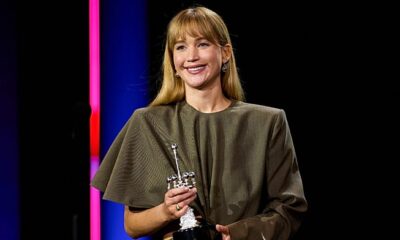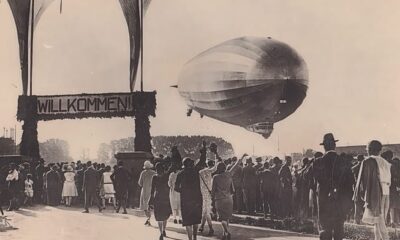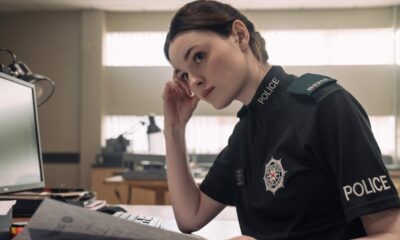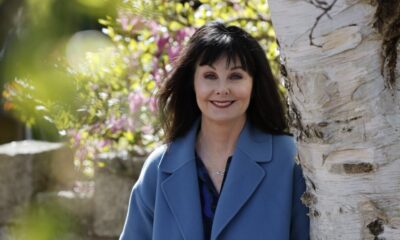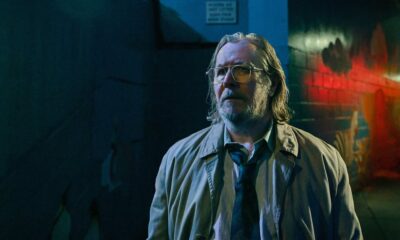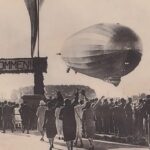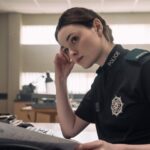I always love the chases – that’s when you have to try and keep your cool and act as if you’re not enjoying it
— Katherine Devlin
Culture
Poem of the Week: Death Comes to Caravaggio
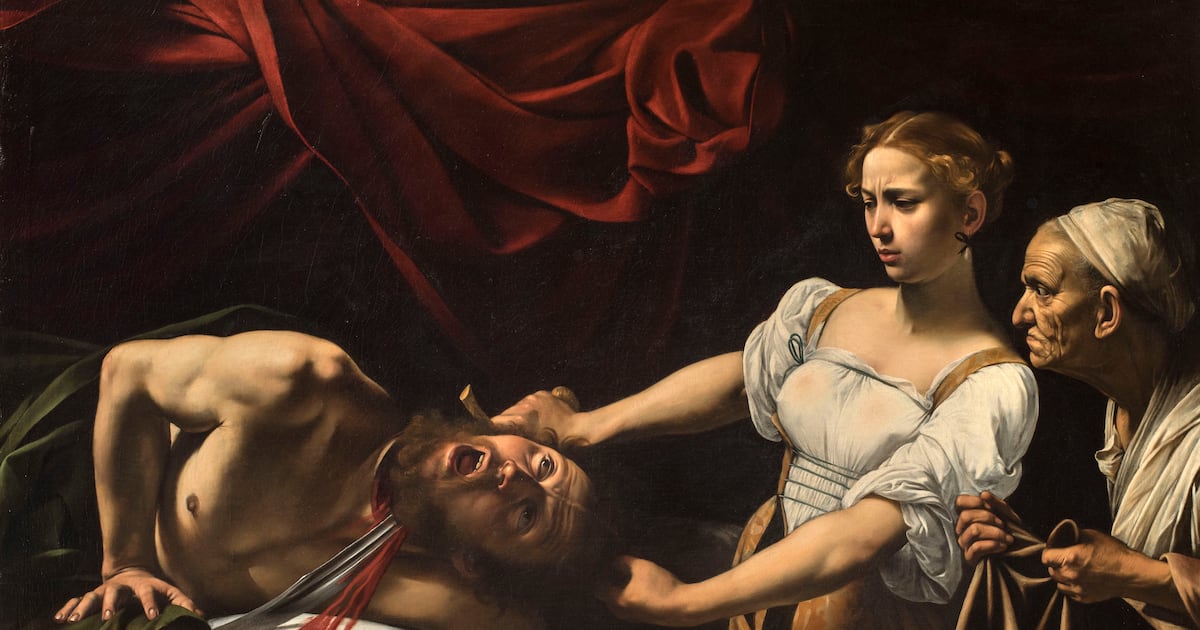
Read more on post.
Was it fever, or was it lead poisoning,
or was it a vengeful murder? It was not.
It was not exposure, nor was it illness
undefinable. It was not a thousand paper cuts.
It was quieter than he had imagined—
the light fell from the window, as though a brush
had drawn away white paint from a body.
It was not a beheading, it was not righteous.
It was not over a debt or over a hole in the earth.
It was painful, and the pain became a horse bolting,
throwing its rider in the light, its bit clacking
in its teeth, while an invisible thrush sang
in a tree. On his canvases he made robes red
because he loved red. It was not an argument;
it was not an apology. It was not quick;
it was not removed from time. Death comes
to Caravaggio; it comes to him like a dream.
Death arrives and keeps arriving, like change,
like uneven nights. That’s it. It is arrival
like night: darkness first, then sound.
Colin Criss has had poems published in Ploughshares, Cyphers, the Harvard Advocate, and in many other journals. He teaches poetry at Washington State University.
Culture
‘Our freedom of speech is under attack’: Jennifer Lawrence hits out at Donald Trump
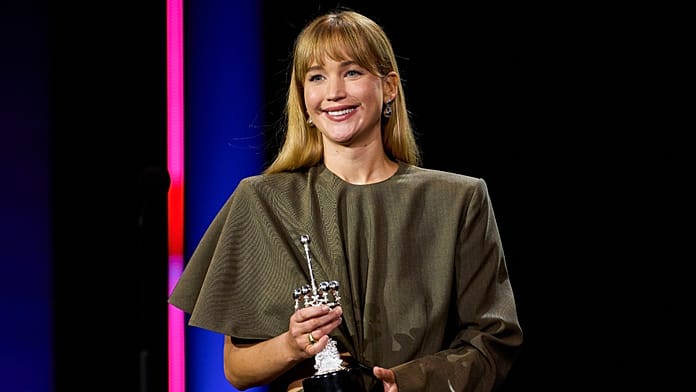
Read more on post.

ADVERTISEMENT
The 73rd edition of the San Sebastian International Film Festival in northern Spain experienced one of its highlights on Friday night with the presentation of the Donostia Award to Jennifer Lawrence.
At the age of 35, the American actress became the youngest performer to receive this recognition for her career, which already includes an Oscar, a Golden Globe and enormous public support for a long series of films that have marked an entire generation.
“Our freedom of speech is under attack in the United States.”
“It’s a huge honour,” the actress told a pre-ceremony press conference, where she also reflected on the state of culture in her country: “Our freedom of speech is under attack in America, including in the world of film, where we realise that we are all connected and need empathy and freedom.”
Lawrence presented her latest film, ‘Kill Me Love’, which represents a turning point in her career and in which she participates as a producer, at the event. The performer encouraged young filmmakers to keep fighting for their dreams: “Learn, go to casting tests, keep trying. But above all, watching films is very important”.
When asked about the role of women in Hollywood, Lawrence noted that creators such as Greta Gerwig, a renowned actress and independent film director, “have shown that when we are given the opportunity, the world benefits, because more stories are told and there are more perspectives.
Oscar winner for ‘The Bright Side of Things’ in 2012, Lawrence has starred in acclaimed titles such as ‘The Great American Swindle’, ‘Don’t Look Up’, ‘Joy’ and ‘The Hunger Games’ trilogy.
In addition, with her production company Excellent Cadaver she has promoted projects such as ‘Causeway’, ‘Sin malos rollos’ and documentaries of social impact such as ‘Zurawski v. Texas’ or ‘Bread & Roses’, which was distinguished with a Peabody Award.
The actress joins a long list of personalities who have received the Donostia Award, such as Penélope Cruz, Julia Roberts and Viggo Mortensen. In San Sebastian, her award crowned a festival marked by political gestures, especially in relation to the war in Gaza.
A festival marked by protests in support of Palestine
The strong political tone that was to mark this year’s San Sebastian Festival was already present at the opening of the event, on 19 September, when some 2,000 people gathered outside the Kursaal to express their support for the Palestinian people.
“Free Palestine” was the slogan chanted as the guests paraded down the red carpet. Inside, presenters Silvia Abril, Toni Acosta and Itziar Ituño condemned “the genocide carried out by Israel in Palestine” and called for a round of applause “to be heard even in Palestine”.
On the same day, Pedro and Agustín Almodóvar wore stickers with the slogan “Genocide Stop” and shouted “Long live free Palestine” during the Donostia award ceremony for producer Esther García. The honoree herself recalled that “films are tools to make the world a more beautiful and fairer place” and urged to “fight to stop the genocide in Gaza now”.
The protests multiplied throughout the week. On 21 September, Juliette Binoche called from the stage for “an end to the massacre in Palestine”, while Iranian filmmaker Jafar Panahi denounced the insensitivity of international politics.
Last Tuesday, directors such as José María Goenaga and Aitor Arregi, in competition with ‘Maspalomas’, defendedthe embargo on Israel: “It is time to take a clear position”, said Goenaga. The following day, the director of ‘Los Tigres’, Alberto Rodríguez, was categorical: “The continuation of the genocide in Gaza is a disgrace. We are all accomplices if we don’t act”.
Also on Wednesday, in a gesture reminiscent of Javier Bardem‘s keffiyah at the Emmy Awards, Eduard Fernández took to the stage wearing a Palestinian headscarf during the National Film Award ceremony. He read out the names of the children who died in Gaza and warned: “Some will say ‘what a pain in the ass’, but we can’t stop saying it to preserve our dignity”.
San Sebastian, in this edition, has shown that cinema not only celebrates careers such as that of Jennifer Lawrence, but also becomes a loudspeaker for common causes, above all in the world of the seventh art.
Culture
Untold history: New book reveals tales from the first airship voyage around the world
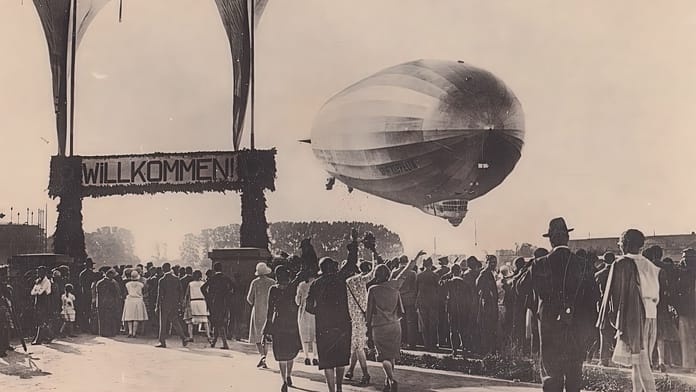
Read more on post.
Ai${#>Uړ`=
v&ѨsjG`Wi]
mmֹ˿”�
tE+ kdỦ&zQR7C Do~lhkh]ΌX’^vJׁG#ǂPxu0o^ JZJ|yoq.^yk5;0,?8Mn&ǩBD’pZa>T
`דƒ˴0-O 6lP v_n)3zjHJpPq+dӮbmXW09>Db3QeS
MTy.P'[Cq~I70̌;
|UROZ6’r*fT^%T�^oa
k-!%˭h9S#f
dꎠ=mܸL{#6B&?WcPG4DcqL9ae~?t|”ڸr0
V(1G;@M=U8,@HEv`ͭ铕Jk=4EtTy*=icҒ|`heB^yǗܟ:Jò# eN0CAC$Ip7,lG(a=6
^:ww
VX&|Y7zHL
7fh.MezܫmSDr(&~ND֍kVɆT4w空@ԝ;etzjV.v逩zb??b$l麵c@kh/4 зs8″Ѥsh*{
@L=flv?Tw rML�tԚhJ5^(DYn4hh7&cm4CsykH45 }>{6N4縀blUgozlg1jMȍ)]4~X+Ä_vGr�mxkh1R@B&ڣmL}j’2!LbE?ډ^lHTnq6R^W{a4 S^M8^o:{KO”]Qx}>} 1[!1’6&րϥힽg_=g}h
~[‘Ԁ#Nt*mzÉ5V6YD=5K!jklti/+4^lH#
X(Љ499SSoowmelHKĩ”hk
LfmLdك>dnߌdHv?oYE峉F~H8?F2]0!HCGa@Dy4Ӽl:`[Sas(r,IH5%9(Q
(PN*Bchz%DqwRL~lZ nݢ.ܰ%-/K4UOuD”5_AzxlF(RKoZn5L4n^A622;6瑢@FiMV3 %%Uq۰yF|#jU|�lSG(!s
z ͘
~ӄ&Ոm$tL!x^[=M lM2p&jpD5_:k!]7_2M^
l
΅0j’Ԍ?LDO5zFjWxo5fjOq ˴>ؠ5 c4˂i
J>Se dًQK”26O-rkjlQ600s0Y7{ [hSurI49 \14d5b@217/�ZHژ5En즎_po3)sAR:QG2Rm3twE+@0U1`el41sQ’ qYf�V= ĬV.a5 O[JMB
n5″1�4->0q!k’Hy`kYżC$.psoC[X;CxyXSiϬcA8b l|Q]Pܭ]`P.w0SRGfqb�t{ogJ}8D^)S䅃 YكQf#DCb>jH
S]z90yWyaPuT)XUT; l[GDkaSj&5%ꌟ0eҏ`J9ntD 72m߆]O@N9]642Q.6)s!lvspz
=ˈ/QwsXYm};[‘n#O8 wbN$Ld.jx6zp10LjhmZ[]s[`/4O80kk@[>wtVQ0fcA z!4ݚGy1kf>uݖC;JZf6͋?Tf(1.,>�*) UOgGQFT’}}4-ޯV={t9|D{8Յ9jsAc`ִ囤¶uVKGTn4y|Ծ,ݱnΚV~hҤj47`aD6#`%/8jx+E`-LCa�V6IV&ZxND6_&jS>8%BO>;QV[2@R’|@x_n9{=]NqsDO/I2!)=ʨ=p{OCn?m,ff[>=oq=9{C?;kovq٭C0’Nf잞fJiz;ghKw)_0uKw
%
,s!ЖE͏4h)KG݂bߊpOhdgU=|!>m][n.>˸mf`@[e4ɶ1y’Ui’�³-QAiWh”c9GN-Yu⒔ٙ]٧5~oGTa’$)R,IS}V&>E7?Ih`7֪Oٲj-%’2W_]MNYZZ4*|Տl8zb7WFZ= jĀJT*?’Fn�V_j HPDk9E-[$6!b1E@mɏ1{&10zyf1aaawW(Ky֟Dz-:ԙQeCGM#c輩@gOZIe[Y7El8Q#)aC)|ݟv:cyVq&=UiEPRxZ؛>_@oH^�k{P1/KX̳(^@RZn63j0@4X_͠2ю:˲[ӸixEyq$Yvi7yQU
IaIŸ9=.tŬt~{U4MYAMӔMW
fU%eR4}Egױ:4qV&E48av[/ڛ_HR|080
#Ai0TOדY_Uh^4۔Z,F-z#uvKk`g^f6coZɩ*7eɿ-:^R}4T8UO
Nb*lݲb4m737wYfP5{7~f2$/rVq
B`7pǑ 8 &OQEb9y6IZ,RC{u(1Eb/::AvM*>Wco6XH{u|A]PQ�∱o
e+^w$
_Ft#)OBO)s:-[ON{ra)6s
DMv”P%K$uX6rc60>Z6aZ*PH!|O’
N@lDf9&#qHeDm09-:IxPU箰@:wIעd(GFN9X{vۧصn%’qbs4]J=&qnO왹kݞaEL֙%JYDEƙ
%&;”9 W.vVծu{lDϤ}�gb^cn473ڽF&zAXv)z瀦hR^/Qd}yK)عDX%#SB#_o?~v+J=,@H/UFIPQpCGSpZj !،(ohp//=BLK7@qij/I?Dy&X@ՅŜz
mɮXYG/e:-مT1
Ma 7w}0J2KvT,|SL8eQ|HlOB=|蕊q’K1Z
srcT}r.9cj+qK8Abb
FϽrBc^%ZJfRK)7/Hk[+1NA|
EQ)~$Kz};]MotEu06^m,ſ~60NIHTzKݺQ
)᷎ͥR]
jt”#8S^_4?_{Mԗt8Iv%W o]g]p8BTO&=H/GvcC(щ9a*KT:K ϧSn;$45spڒ-UUyo
[)..
R�1SKacL)/]?KaR
C_ժzkW7%O-h1]++Kף~3{Knj?.Kn
!Yo&SPӒ5גT5ے.:~Kޚg3uR8+ϥpZ.SswIKb?9rT KR
|mMfƈDҷ”A;*tmj{yMm0kbpL
NUJ:̈́ǒ`˒S9oPS>RuK.^{ANo#70 Rc45GGO>’0XdsMWR,Y*l3`͒k0k+,ZruuZ
LyMzcR8;.z&&+Dqvc ɻ!P@W8X7
Culture
Katherine Devlin: ‘I had huge imposter syndrome filming the first season of Blue Lights’
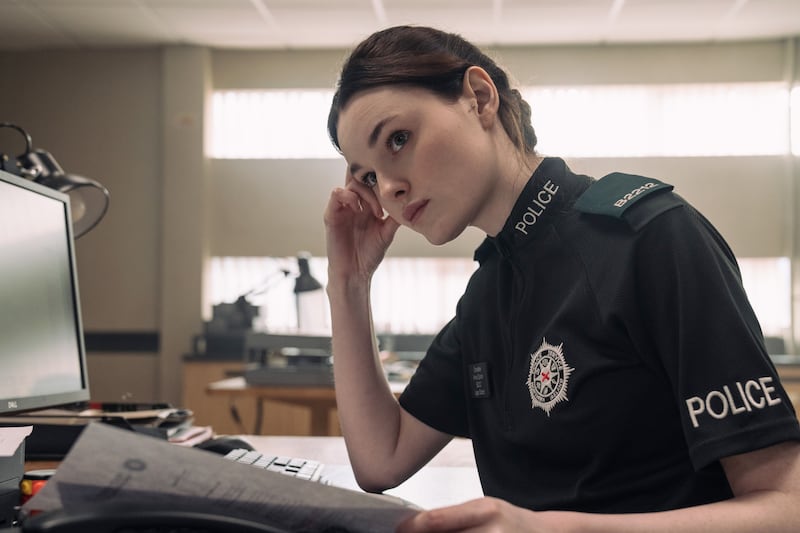
Read more on post.
There’s a saying among performers: if you want to work in Ireland, move to England. (Once you leave, the offers pour in, or so the logic goes.)
For Tyrone actor Katherine Devlin, this couldn’t have been more on the nose. In 2022, she was in a Westfield Shopping Centre picking up bits to furnish the London flat for which she had just signed a lease. A few days prior, she had packed her worldly belongings into two suitcases and hauled them across the Irish Sea.
Now, as she lugged a “huge new duvet”, freshly purchased, through the mall, a call came through from her agent. She had landed the role of Annie Conlon in the Belfast cop drama, Blue Lights.
“Within a week I had to pack everything up,” she says. “I mean, I hadn’t even unpacked, that’s the thing. And I went back home.”
Having graduated drama school a year previously, Devlin had been collecting smaller parts in the likes of Netflix’s Vikings, and Element’s The Dig, but this was new territory. She’d play a central role, as one of three rookie Police Service of Northern Ireland (PSNI) officers, in a prime-time BBC series.
“I had huge imposter syndrome walking into Blue Lights season one,” she says. “[In drama school] we get training when it comes to screen acting, and when it comes to acting in general theatre, but you learn on the job – you really do. It’s the small things that you can’t really teach, like making your mark, and the technicalities surrounding it, and being on the same page as the DOP [director of photography]. When you’re in the rhythm of it, that’s when you pick it up.”
Co-star and seasoned actor Siân Brooke (who has starred in Sherlock, Dr Foster and Trying), was a grounding influence.
“She said a couple of things that really stuck with me,” says Devlin. “She was like, look: if there’s anything you need, just come to me, because I’ve been there before. But also – and I stand by this, too – the fear aspect doesn’t really end. You’re always going to be rocking up to set nervous, because you care.”
Following new recruits, Grace (Siân Brooke), Tommy (Nathan Braniff) and Annie (Katherine Devlin) as they navigate the challenges and idiosyncrasies of frontline policing in contemporary Belfast, Blue Lights went on to receive widespread critical acclaim. It wasn’t long before Devlin was walking the Bafta red carpet in Alexander McQueen after season two got nominated in the Best Drama Series category (it clinched the win).
“We were filming at the time, and then got news that we’d been nominated,” she says. “Everybody was cheering and clapping and loving life, but also, on the flip side, we were like: we still need to film season three.
“It was just chaos … I remember immediately getting on to a stylist. I had some sort of vision of what I wanted to wear. I didn’t think that would be McQueen, which was incredible. We landed there and it was just surreal, totally surreal.”
Devlin is speaking over Zoom ahead of the release of season three. A fourth season has also been greenlit.
She’s back living in London – second time’s a charm – and has just got a cat, Lughnasa, who skulks behind her on the couch. Devlin sits in front of a blank wall – nothing to see here – but has a face you cannot look away from, and it is this, with her dark features and pale-to-translucent skin, that fills the screen.
The curious intensity of this face is part of what makes her so compelling as Annie, a fiery young Catholic officer, whose many layers peel back as the seasons proceed.
“Me and Annie are quite similar,” she says. “She’s from a Catholic background, so am I. There was something there that I could really relate to, especially being Irish and being from the North. Annie isn’t from Belfast – she’s from the Glens of Antrim. So, she’s a country girl, and I’m sort of a country girl, too.” (Devlin grew up “between the town and countryside” in Cookstown, Co Tyrone).
What does she think compels a young Catholic woman like Annie to join the PSNI?
“It’s a constant question, especially this season with Annie, where there are a lot of sacrifices being made … At the minute, within the PSNI, 32 per cent are Catholic. [The Catholic population] is underrepresented, and it has been for numerous reasons, such as mistrust within Catholic communities dating back to the Troubles and the RUC … There’s a lovely scene in season three [where] Tommy asks: why are we doing this? Why are we sacrificing so much? Because they are – it’s a real vocation. And Annie and a couple of others say: because it’s important. I think that’s what it boils down to.”
Co-created by Declan Lawn and Adam Patterson, who both hail from the North and who first met as reporters on BBC’s Panorama, the show has an authenticity and lightness of touch that sets it apart.
“It is a police show that isn’t copaganda – that isn’t sleek and sexy. You’re seeing real-life police officers that have their flaws. It’s also a show that isn’t afraid to ask big questions and show those hard-hitting topics.”

In season three, the complexities and injustices of class are under the microscope, as the officers reckon with the hidden world of white collar-criminals who facilitate organised crime.
“They’re very much within the belly of the beast in this season, and dealing with a system that is so much bigger than themselves and super-overwhelming for them as characters,” says Devlin. “There’s a lot of really heavy stuff. They bring up a super hard-hitting topic about car accidents within the North. There’s a scene where Aisling [Dearbháile McKinney] and Annie arrive to a car accident, and it offers up this question of how people deal with trauma, and how they deal with grief.”
Along with hard-hitting topics, we can also expect stunts, car chases, action.
“I always love the chases – that’s when you have to try and keep your cool and act as if you’re not enjoying it.”
And three seasons in, Devlin, like her character, is quite literally settling into the uniform.
“The uniform is naturally very heavy. It’s a really good way into the character, because it changes your whole posture. It changes the way you walk. Getting used to that was a bit of a struggle.
“But then, also, we have a fantastic police advisor on set that we can go to if we want to ask a question. He’s super on it when it comes to making sure that we’re … staying true to how it’s supposed to be.”
The daughter of a civil engineer father and artist mother, Devlin knew she wanted to be an actor from a young age, and saw performance as a way of expressing her big imagination.
I think what makes a truthful, good actor is somebody that doesn’t want to be famous
— Katherine Devlin
“I loved the idea of just stepping into different character. I was really shy in school, and I remember being petrified at the idea of having to speak, or to read out loud, in class.
“The idea of being perceived as myself was actually very terrifying. But when it came to the acting side of things, there was a real comfortability.”
She took drama classes as a child, and remembers her first performance, aged nine, wearing a flamboyant red hat and doing a Southern American accent, on stage in the Burnavon Theatre in Cookstown. Later, having turned down several university offers, she completed a foundation course in Acting and Theatre at Dublin’s Lir Academy, before working in a Dublin sushi restaurant.
She recalls this as one of her “fondest memories … I think everybody should have some experience of dealing with the public and [doing a job] such as waitressing”. After this, she went on to train at the Royal Welsh College of Music and Drama in Cardiff.
While the Lir boasts a number of well-known alumni, most notably Paul Mescal, the notion of fame is not something that appeals to Devlin.
“I think what makes a truthful, good actor is somebody that doesn’t want to be famous. The people that go into it to become famous, in my opinion, nine times out of 10, aren’t great actors. You follow the craft of it, and you follow that truth.”
For the large majority, acting means grit, not glamour.
“It’s a super tough industry, and it’s extremely competitive. It’s a constant journey and a constant battle within yourself as well – making sure you stay true to who you are, but also picking yourself time and time again when you do get those rejections … There’s such unknown territory within this industry. You never know what’s around the corner.
“You either get sucked up by it, or you relish and enjoy the idea of the unknown, so that’s what I’m trying to do.”
Blue Lights returns to BBC One on Monday, September 29th.
-
Politics4 days ago
European Parliament snubs Orbán with vote to shield Italian MEP from Hungarian arrest
-
Culture2 months ago
Fatal, flashy and indecent – the movies of Adrian Lyne revisited
-
Culture3 weeks ago
Life, loss, fame & family – the IFI Documentary Festival in focus
-
Environment1 week ago
Key oceans treaty crosses threshold to come into force
-
Health5 days ago
EU renews support for WHO’s Universal Health Coverage Partnership
-
Culture1 week ago
Farewell, Sundance – how Robert Redford changed cinema forever
-
Culture4 days ago
Twilight at 20: the many afterlives of Stephenie Meyer’s vampires
-
Culture4 weeks ago
What is KPop Demon Hunters, and why is everyone talking about it?


